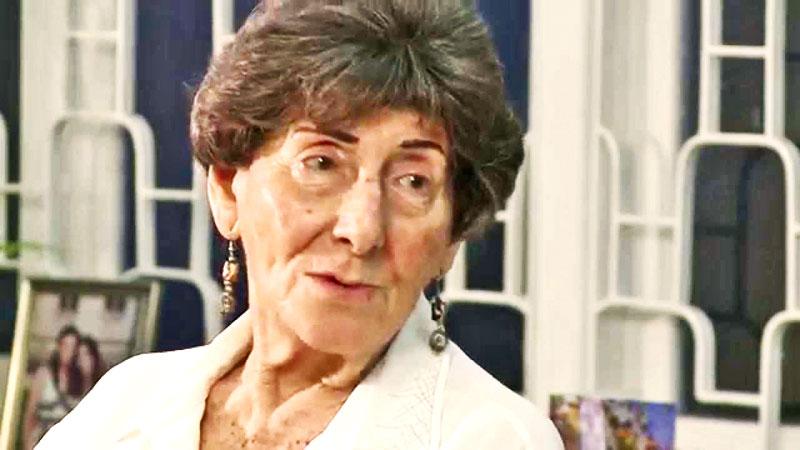
The literary circles in Sri Lanka lost another gem last week - Anne Ranasinghe. Sri Lanka was not her motherland, and English was not her mother tongue, but she mastered the language to create literary marvels and settled down in this island paradise to live the last seven decades of her life. It is said that she has been the only resident Jew in Sri Lanka for the past 40 years.
The Holocaust seems so long ago, but being a victim of the Second World War, Anne Ranasinghe stubbornly kept her memories alive through her poetry, making connections with the war in Sri Lanka and perception of victimhood, in a world that is rapidly growing indifferent.
This assumes greater significance because in a few more decades, there will be no one left alive who can remember WWII and the Holocaust – it is the literally expressions of victims’ memories that will continue to tell this harrowing story.
Anne Ranasinghe was born in Anneliese Katz in Essen on October 2, 1925 and as a child witnessed ‘Kristallnacht’ (‘the Night of Broken Glass’); the burning of the synagogue in Essen.
In 1939, when Anne was 13, her parents sent her to England to escape the Nazis, to live with an aunt she has never seen before, to live with strangers and learn a new language.
Within six months, World War II broke out, and she became an enemy alien. Much later, Anne would learn that her parents and all of her relatives had been murdered by the Nazis.
Hence she wrote: “I have been asked why I was ‘so obsessed with death,’ and I have answered that I am no more obsessed with death than with love – aren’t these the two predominant themes of our lives? And death has in truth been ever present in my life: first in Hitler’s Germany, then during the war in England, later when I learnt of the loss of all my family. And my husband fell ill and was unwell on and off for the last ten years or so of our marriage. Now I myself am getting to that point in life when death from being an abstract idea becomes a concrete possibility.” When she was studying in England, Ranasinghe intended to study medicine, but thought she did well in the Oxford Matriculation, she could not win a scholarship to pursue her studies as she was still a German citizen. She qualified in nursing in England, but writing was her true calling.
She married Dr. D.A. Ranasinghe, a professor of Medicine and arrived in Sri Lanka to write poems and short stories, and become the great writer the country has known her to be.
Her first collection of poems, And the Sun That Sucks The Earth to Dry, was published in 1971. Her poems such as July 1983, Plead Mercy, A Long Hot Day and At What Dark Point, savoured the idea that each individual has the potential to love as well as to create their own Holocaust.
Among her works are Mascot and Symbol, Desire and other Stories, You Ask Me Why I Write Poems, The Letter and Other Stories, Not Even Shadows, Against Eternity and Darkness, Of Charred Wood Midnight Fear, Love, Sex and Parenthood and With Words We Write Our Lives Past, Present, Future.
She published twelve books which have been translated into ten languages including German itself, and her work has been published in seventeen countries.
She won numerous awards, including the State Literary Award for the Best Short Story Collection in 2007, Sri Lanka Arts Council Prizes for Poetry in 1985 and 1992 and non-fiction in 1987. She was also the recipient of the Order of Merit of the Federal Republic of Germany, the nation’s highest level of recognition of excellence.
She was also a founding member of the English Writers’ Cooperative of Sri Lanka, and was an editor of its journal, Channels but beyond her literary work, Ranasinghe served as the Executive Secretary of the Amnesty International South Asia Publication Service in Colombo for nearly 15 years.
Her death marks the end of an era in Sri Lanka, in Lankan literature as well as the socio and political representation she marked in our society.
